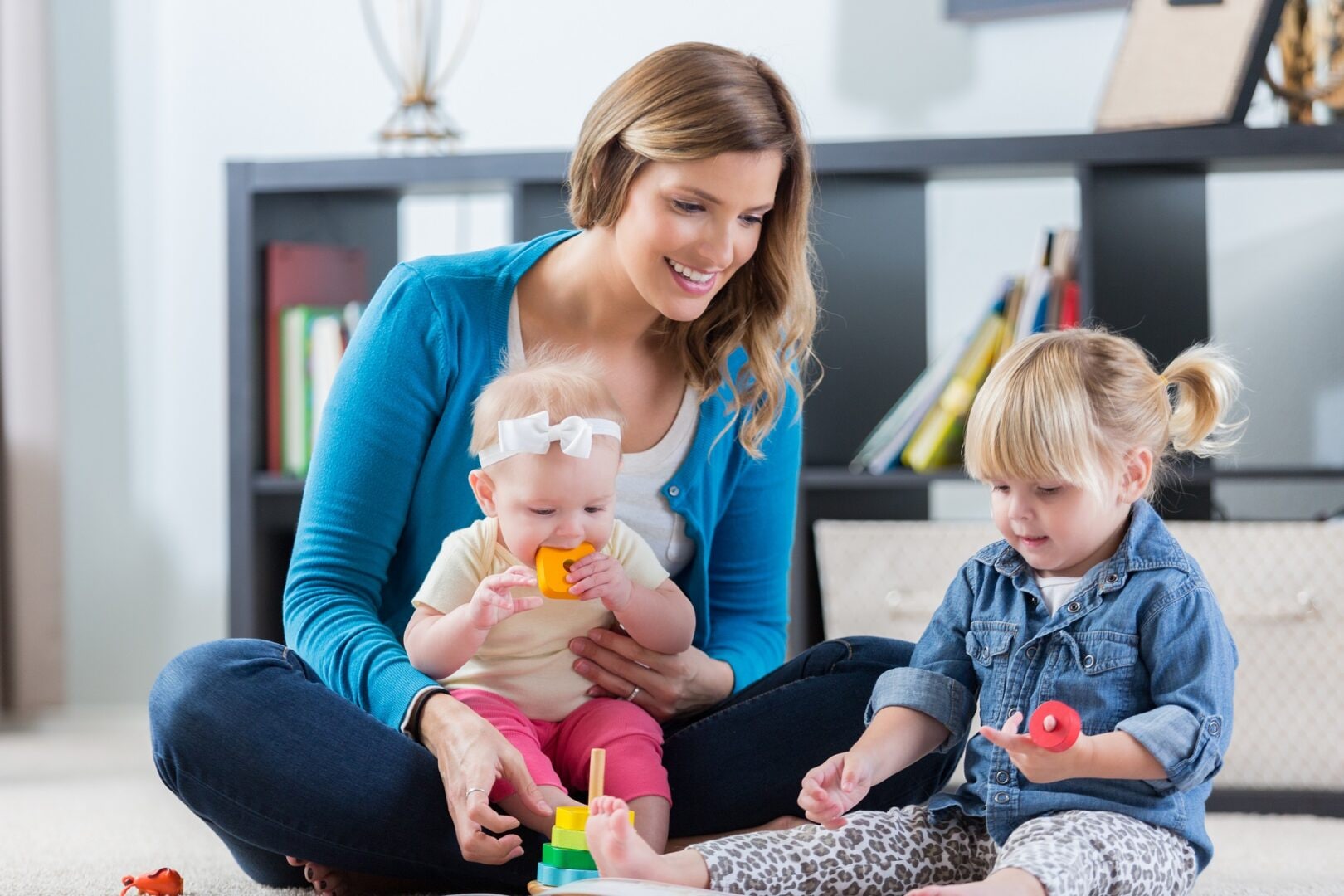If you’re thinking about working with children and trying to work out what option is best for you, you’ve probably come across the term “childminder”. It’s also likely that you’ll have some questions about the role. Is it the same as being a nanny or au pair? What does the role involve? And who can do it?
In this article, we’ll answer all your burning questions about the role of a childminder so you can see if it’s the right option for you.
What is a childminder?
Whereas a nanny or au pair is usually contracted by one family to work exclusively in their home looking after just their kids, a registered childminder normally works in their own home and can look after children of different ages from multiple families at one time. Like with any childcare provider, a childminder is there to support the learning and development of the children they take care of.
A childminder is a popular option for families looking for a convenient childcare arrangement. Childminding offers something in between a nursery and a nanny in terms of price, flexibility, peer socialisation and child-carer ratio. For example, a childminder is not as expensive as a nanny or au pair, but still offers a low child-to-carer ratio. They also offer more flexibility in terms of schedules than nurseries, which can be notoriously rigid, but with the benefit of mixing with children from other families. And, of course, a childminder offers a home-based, family environment, which younger children in particular can find easier to adapt to than nurseries.
All this means that if you do decide to become a registered childminder and you’re good at what you do, you’ll likely find no shortage of families looking for your services.
What does a childminder do?
One thing’s for sure—a day in the life of a childminder is anything but boring! No two days will look the same, either. Your day will be full to the brim with activities, meals, pick-ups and drop-offs. But what exactly could your working day look like as a childminder?
First things first, when will your day start and end? The children you look after will probably get dropped off by a parent/guardian before they head to work, so likely before 8/9am. They might stay with you for the morning or until the end of the day—it really depends on when their parents/guardians finish work and the hours you’re willing and available to work. Childminders often work past 6pm to cater to parents’/guardians’ working hours. In between drop-off and pick-up, you can expect your day to be filled with the following activities and tasks:
- Providing inspirational learning activities such as creative play, messy play, cooking, reading and storytelling to support early language development and the development of creativity and imagination.
- Offering free play activities, both indoors and outside.
- Planning, preparing and serving healthy and nutritious meals and snacks.
- Changing nappies and making up bottles for babies, where appropriate.
- Taking children on outings, such as to the park or library.
- Taking older children to and from playgroups, school or extra-curricular activities/clubs, working with the parents/guardians and other childcare providers involved to offer a coordinated approach.
- Working with other local childcare professionals to support learning and development.
One thing you’re not required to do is administer medicines if a child you’re caring for is sick, unless specifically instructed to by the parents/guardians. In such a case, you would need written permission. Please see the statutory framework for the early years foundation stage for more on this.
What skills does a childminder need?
Being a childminder is not for everyone, but it might be for you if you have a certain skillset. Just like any other caring role, there are some key skills that a childminder should possess to succeed in what they do, such as being responsible, patient and compassionate. But perhaps the most important of all is that you genuinely enjoy being around children and helping them to learn and develop in a fun and engaging way. This is essential, as you’ll be spending a lot of time around little ones in your role as a childminder!
Other than this, you should possess the following skills:
- Knowledge of and interest in early years education and educational philosophies.
- Good interpersonal skills with people of all ages and backgrounds, as you’ll also need to interact with parents/guardians and potentially other childcare professionals.
- Problem-solving skills and initiative to deal with the daily challenges involved in looking after unpredictable little ones.
- Good organisational and administrative skills—you’re running a small business, after all.
On top of all these skills, you’ll have to be adaptable and open-minded enough to let others into your own living space, and be willing to make it suitable for children to play safely and happily in.
Do you need qualifications or experience to become a childminder?
Even though you don’t need any formal qualifications or prior experience to become a childminder in the UK, there are some rules as to who can offer childminding services. The basic requirements for becoming a childminder are:
- You need to be over 18.
- You need to have the legal right to work in the UK.
- Your home environment must be suitable for you to welcome kids into. If you rent, you need permission from your landlord. You also need permission from anyone else you live with.
- You, and anyone over 16 who you live with, needs to do a DBS criminal record check to make sure you’re safe to work with children.
- You need to complete a health declaration form to prove you’re in good enough health to work with children. This needs to be signed off by your GP.
On top of this, you’ll need to register as a childminder, which comes with further requirements.
How do you register as a childminder?
Childminders are normally self-employed and need to be registered with Ofsted or an Ofsted-approved childminder agency. Depending on the age of the children you care for, you’ll have to join either the Early Years Register or the Childcare Register. You can get a fine if you do not register when you need to. Currently, it costs £35 to apply to register with Ofsted, and you’ll need to renew your registration each year.
You must register as a childminder if all of the following apply:
- The children you care for are under the age of 8
- You look after them for more than 2 hours a day
- You look after them in your own home
- You get paid to look after them—including payment in kind
To register, you’ll usually need to complete:
- A home-based childcare course that covers the early years foundation stage framework
- A paediatric first aid course
- Child protection training
- A food safety qualification
Your level of English and maths may also be assessed, as well as your home and any equipment you use. You’ll also need to provide appropriate references. These steps may seem strict, but they are crucial to make sure you are suitable to look after children. There are also childminding ratios to take into account, which can be found in the early years foundation stage statutory framework.
Depending on the register you’re on, you and your home may be inspected to make sure you’re meeting the necessary standards of safeguarding and welfare, and learning and development. For more information on this, check the government website.
Where can you find childminder vacancies?
If you’re keen to become a childminder, and you have the necessary qualifications and skills, then take a look at our current vacancies.

